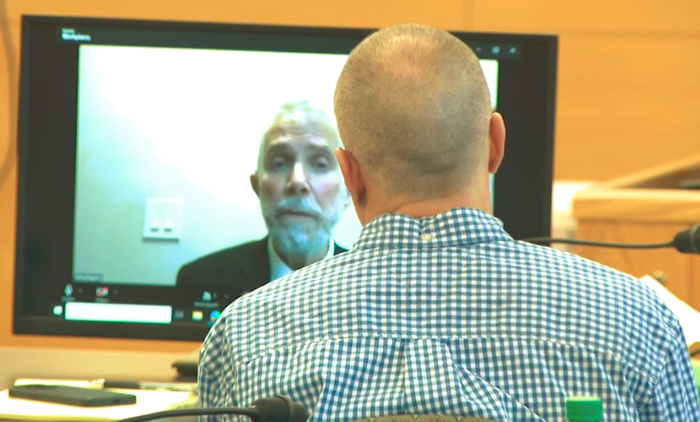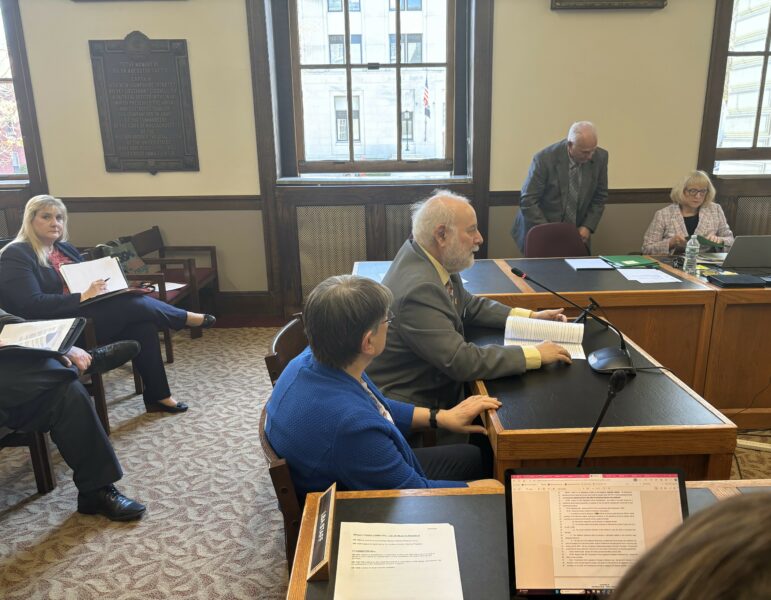By NH Broadband, a citizen action group
In New Hampshire’s first referendum on rural broadband, a strong majority of voters in the New Hampshire Electric Cooperative’s annual election told the 80,000-member Coop that it wants “facilitating broadband” added to the utility’s charter.
However, that fell 183 votes short of the two-thirds super-majority needed to change the member-owned Coop’s bylaws. A two-thirds majority, or 67 percent of voting members, was required. The broadband question got 64.4 percent despite declared opposition by the NHEC board.
At the same time, Coop members elected two board members who strongly support a broadband role for the utility, and they turned out an incumbent who opposed the question.
“The broadband vote showed overwhelming support by NHEC members for implementing broadband,” said William Darcy, a Benton selectman who is one of the Coop’s two new board members. The other is Madeline McElhaney, a consumer advocate and real estate agent from Plymouth.
Darcy noted that “few if any of the 100 or so electric cooperatives around the country that have implemented broadband have changed their charters to do so. It’s clearly not needed,” he said. “The NHEC members have spoken. They want their cooperative to deliver broadband.”
Leo Dwyer, a supporter of the broadband ballot question who won reelection to the NHEC board, agreed that the vote was “an extremely strong showing, given that the board urged members to vote against it and warned members the measure might raise their electricity rates. I think the Coop can do a lot to facilitate broadband in ways that would not raise rates.”
The NHEC vote, and the strong showing by members who want the Coop to do whatever it can to promote broadband in its 114-town service area, comes at a time of unprecedented activity around inequitable access to fast, reliable, affordable internet access in rural areas. Broadband is federally defined as download speeds of at least 25 megabits per second and upload speeds of at least 3 mbps.
The pandemic has revealed both an increased dependency on broadband – for remote learning, telehealth, business and civic communication and social cohesion – and new financing options for building rural broadband networks.
Last week Governor Chris Sununu announced the creation of a $50 million Emergency Broadband Expansion Program aimed at under-served or un-served rural communities. Later this year, New Hampshire stands to gain access to $67 million in federal grants from the $20 billion Rural Digital Opportunity Fund; $45 million of that is earmarked for the NHEC’s service area.
“There’s more subsidy money available from the state and federal governments than ever in the history of broadband development by electric coops,” Darcy said. “So we’re in a better position than other electric coops. We’re the best organization to make it happen.”
The high-visibility NHEC election – believed to be the first time Coop members have mounted a grass-roots effort to change policy – increased member turnout for the election, which was conducted by mail and online. Last year fewer than 6,000 members voted, versus 7,880 this time, a 33 percent increase that almost certainly reflects interest in the broadband issue. (Note: Not all those casting ballots voted on the broadband question.)
Insiders and observers say the closeness of the vote – less than 3 percentage point short of achieving a bylaws change – and an increased voice for broadband on the Coop board are likely to change the utility’s inclination to play an active role.
Even before this week’s vote, there were signs the utility had been showing new signs of receptivity.
Dwyer chairs a broadband advisory committee formed by the NHEC board in May. Michael Licata, the Coop’s vice president for member services and communications, said that committee’s charge “is to look at any additional ways of attracting a partner to further facilitate broadband expansion within our service territory. I’m quite sure it will continue its work.”
The Coop’s broadband committee is speaking to four broadband developers about a possible partnership.
Asked if NHEC is planning to apply for some of the governor’s $50 million broadband funds, Licata added: “That’s certainly another avenue for funding that either the Coop or a third party could potentially tap into. But the guidelines are pretty broad right now. We’ve reached out to learn more about the fund and its timelines.”
What NHEC can do now to facilitate broadband is likely to be a topic at the member-owned utility’s annual meeting, to be held via Zoom on June 22 at 10 a.m. Instructions on how to register to attend the meeting remotely can be found at https://www.nhec.com/2020-annual-meeting/





